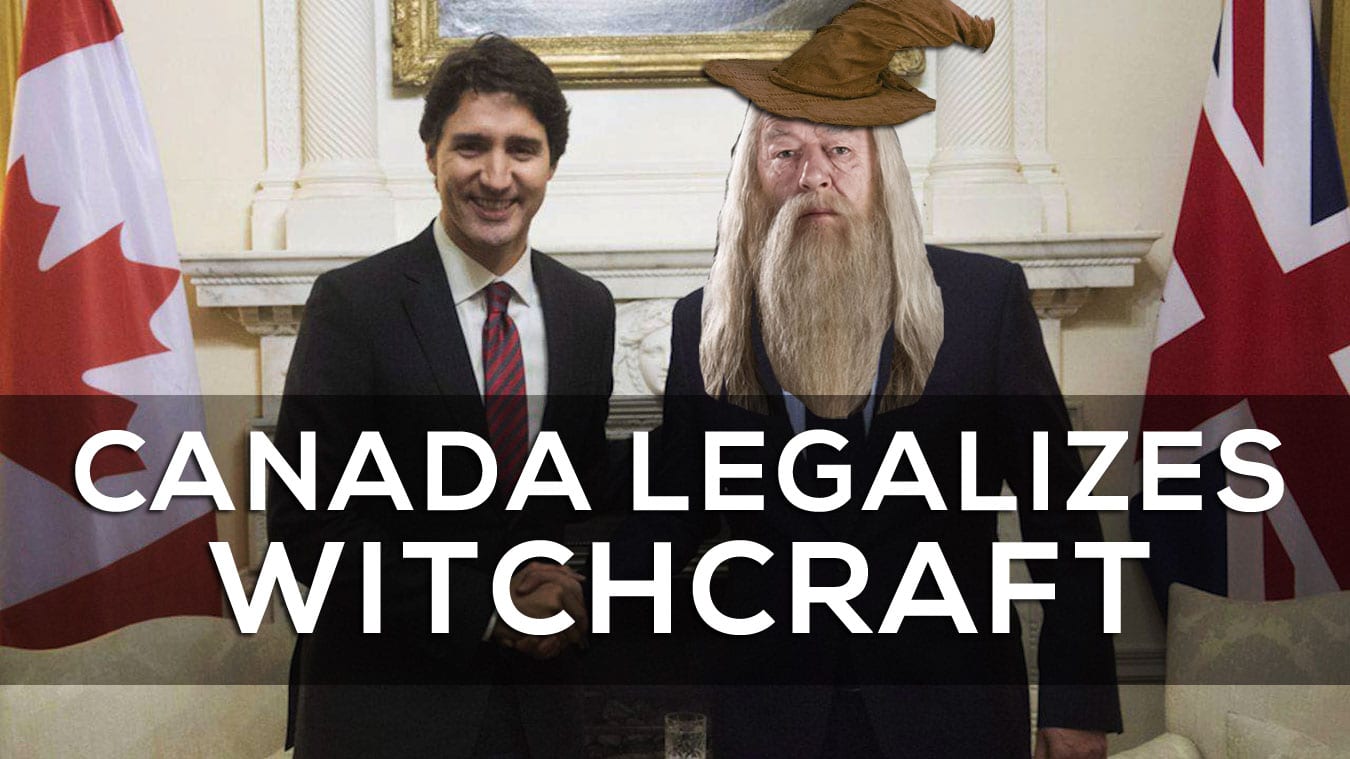
Welcome to the new home of Creepercast.com. Where we let the fear creep in with all things horror genre. News, Reviews, and more! STAFF: J.P.: Editor (EIC - Editor in Cheif), Writer (CC - Content Contributor); Joel Kenyon: Editor (AE - Assistant Editor), Writer (CC - Content Contributor); William S Mayfield: Writer (CC - Content Contributor)
Popular Posts
-
As with all of my reviews of films for The Creepercast, I fully recommend that you check each and every one of them out. I am one man a...
Tuesday, March 13, 2018
Did You Know? Pretending to practise witchcraft in Canada
According to Canada Criminal Code (R.S.C., 1985, c. C-46) Section 365 which deals with Pretending to practise witchcraft, etc.
"Every one who fraudulently
(a) pretends to exercise or to use any kind of witchcraft, sorcery, enchantment or conjuration,
(b) undertakes, for a consideration, to tell fortunes, or
(c) pretends from his skill in or knowledge of an occult or crafty science to discover where or in what manner anything that is supposed to have been stolen or lost may be found,
is guilty of an offence punishable on summary conviction."
Meaning:
Summary conviction offences encompass the most minor offences in the Criminal Code. Unless a different penalty is specified, summary conviction offences are punishable by a fine of up to $500 or six months' jail or both without the right to a jury trial and/or indictment.
According to the way this law is written, witchcraft is only illegal when a person displays an intent to defraud. That implies that something is lost in the exchange, typically money or some tangible asset and/or a person does not actually engage in some Wiccan practice, but only pretends to do so. So you would think that this would mean that all the real and proven practicing witches would be safe from most prosecution. Only those that would seek to do harm by impersonating witches would have to worry about this. Kind of like the laws that prosecute those for impersonating police officers, the law appears to be designed to protect the general public from scam artists that would seek to do them harm. Of course there are holes in this as well, I mean, what if a proven witch still wanted to defraud people. But the real problem is how do you prove a witch is real and not pretending. It all is pretty much subjective for the most part, right? So is this law primarily to prosecute witches, whether we believe them or not, or is it a law designed to protect witches and their clients from false representation? That is exactly what the Canadian Department of Justice had to determine last year.
The good news is, that in June 2017, the Canadian Department of Justice repealed the law recognizing that antiquity of the law and the idea of Wicca as a protected religion. However, the existing laws against fraud (still can be subjective) or practicing medicine without a licence could likely still get witches arrested. In fact, though the law against pretending to practice witchcraft has been used quite recently; police will now have to use general fraud charges.
In other news, Canada has also overturned their you can't challenge someone to a duel law. Sadly, if we're talking about pistol duels it is still unflawful to point a gun at another person. But dueling witches can now be a thing in Canada whether they are pretending or not (and as long as there is no fraud or guns involved)!
Labels:
Canada,
Creepercast,
Did you know,
law,
news,
witches
Subscribe to:
Post Comments (Atom)




No comments:
Post a Comment